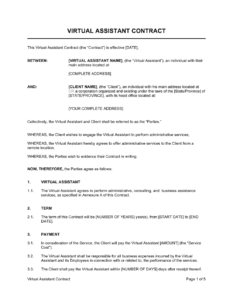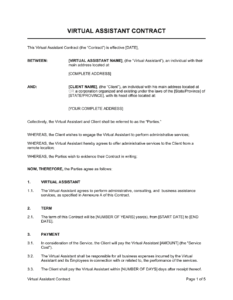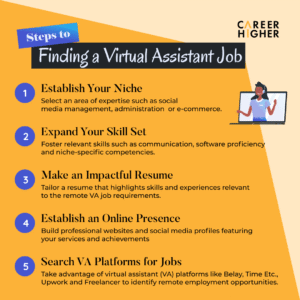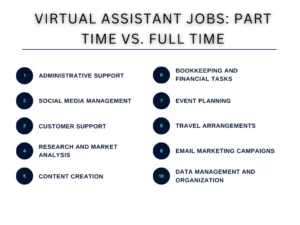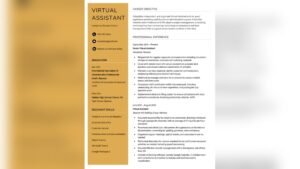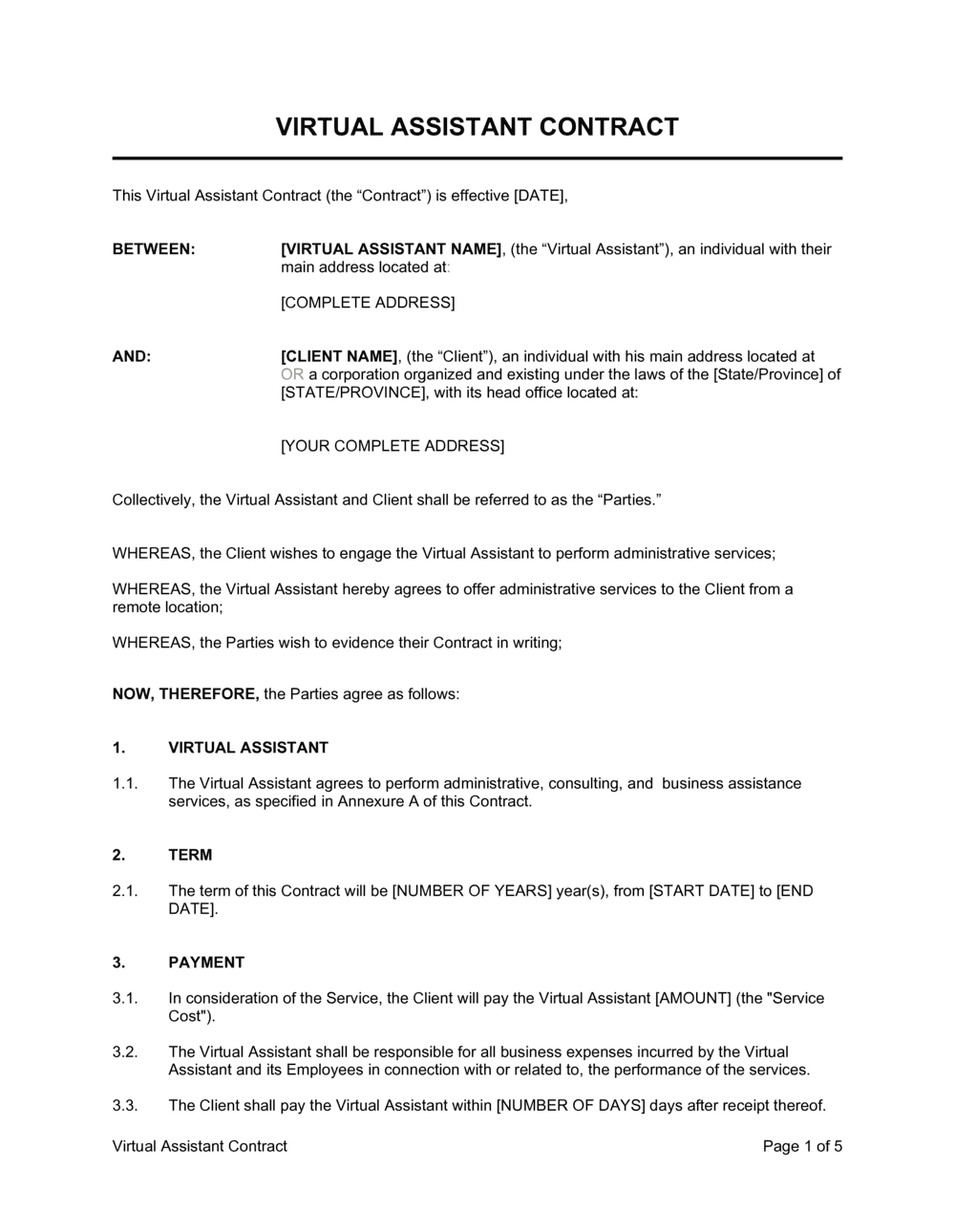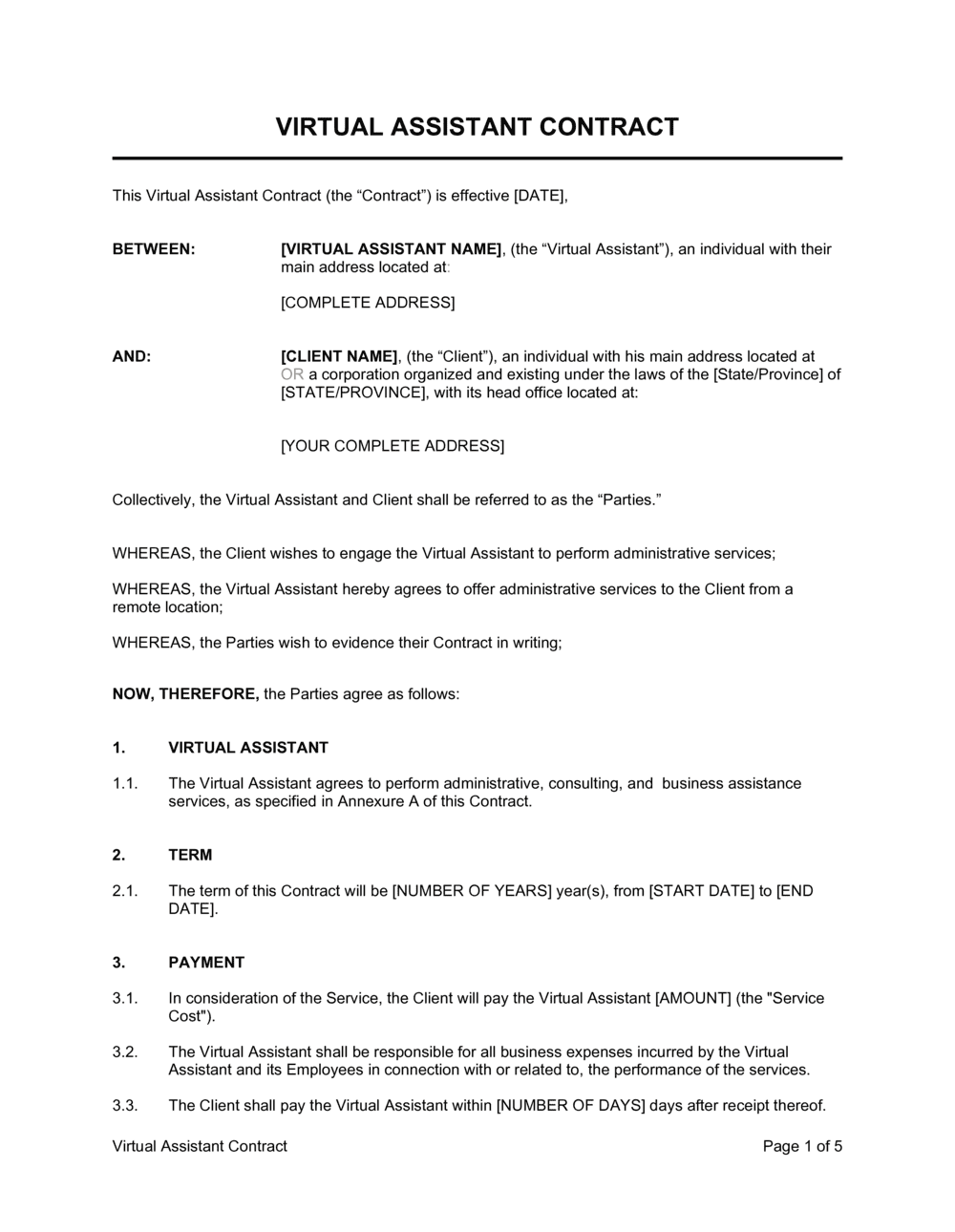In today’s fast-paced digital world, virtual assistants are in high demand. They offer essential support to businesses and individuals alike.
Are you considering a career as a virtual assistant? Or maybe you want to improve your current skills? Either way, finding the right course can set you on the path to success. The best virtual assistant courses offer comprehensive training on various tasks.
These include administrative duties, social media management, and customer service. With the right course, you can learn valuable skills that make you an asset to any team. In this blog post, we will explore the top courses that can help you become a proficient virtual assistant. Get ready to discover the perfect course for your career goals!

Credit: 20four7va.com
Top Virtual Assistant Courses
Virtual assistants are in high demand. Learning the necessary skills can open many doors. Virtual assistant courses help you understand what it takes to succeed. Let’s explore the top virtual assistant courses that can get you started.
Best Platform List
Finding the right platform is key. Here are some of the best platforms offering virtual assistant courses:
- Udemy: Offers a wide variety of courses. Great for beginners and experts alike.
- Coursera: Provides courses from top universities. Good for structured learning.
- Skillshare: Focuses on creative skills. Offers many courses on administrative work.
- LinkedIn Learning: Known for professional courses. Ideal for career-focused learning.
Each platform has its strengths. Udemy is known for its affordability. Coursera offers certificates from universities. Skillshare is great for hands-on learning. LinkedIn Learning provides professional development courses.
Choosing the right platform depends on your needs. Consider what each platform offers. Think about what skills you want to learn. Look at course reviews and ratings. This will help you make an informed decision.
Popular Platforms
Some platforms stand out for their popularity. Let’s look at why these platforms are popular:
- Udemy:
- Affordable courses.
- Wide range of topics.
- Lifetime access to courses.
- Coursera:
- University-backed courses.
- Certificates upon completion.
- High-quality content.
- Skillshare:
- Focus on creativity.
- Community-based learning.
- Project-based courses.
- LinkedIn Learning:
- Professional development.
- Integration with LinkedIn profiles.
- Expert instructors.
Udemy is popular for its affordability. Coursera offers recognized certificates. Skillshare is ideal for creative learners. LinkedIn Learning is perfect for professionals. Each platform has something unique to offer.
Course Duration
The duration of courses can vary. Here is a look at the typical durations on different platforms:
| Platform | Course Duration |
|---|---|
| Udemy | 2 to 10 hours |
| Coursera | 4 to 12 weeks |
| Skillshare | 1 to 5 hours |
| LinkedIn Learning | 1 to 10 hours |
Udemy courses are usually short. This is good for quick learning. Coursera courses are longer. They offer more in-depth knowledge. Skillshare courses are also short. They focus on practical skills. LinkedIn Learning courses vary. They cover many professional topics.
Think about how much time you can commit. Short courses are good for quick learning. Longer courses provide deeper understanding. Choose a course that fits your schedule.
Skills Required
Virtual assistant courses are designed to equip learners with the skills needed to provide remote administrative support. These courses cover a range of topics, from communication to technical proficiency. Understanding the skills required is crucial for aspiring virtual assistants to thrive in their roles.
Essential Skills
Virtual assistants must possess several essential skills to perform their duties effectively. Here are some key areas to focus on:
- Communication Skills: Clear and effective communication is vital. Virtual assistants often interact with clients and team members through emails, phone calls, and video conferences. They must convey information accurately and professionally.
- Time Management: Virtual assistants juggle multiple tasks and projects. They need to prioritize their workload and manage time efficiently to meet deadlines.
- Organization: Keeping information and tasks organized is critical. Virtual assistants should have systems in place for managing emails, schedules, and documents.
- Attention to Detail: Small errors can lead to big problems. Virtual assistants must pay close attention to details to ensure accuracy in their work.
Additionally, problem-solving skills are important. Virtual assistants often face unexpected challenges and need to find solutions quickly. They should be resourceful and proactive in addressing issues.
Technical Skills
Technical skills are equally important for virtual assistants. Here are some technical competencies that are often required:
- Proficiency in Office Software: Virtual assistants should be skilled in using office software like Microsoft Office or Google Workspace. This includes word processing, spreadsheets, and presentation tools.
- Email Management: Effective email management is crucial. Virtual assistants should be adept at using email platforms, organizing inboxes, and setting up filters and labels.
- Calendar Management: Managing schedules and appointments is a common task. Virtual assistants should be familiar with calendar software like Google Calendar or Outlook.
- Project Management Tools: Knowledge of project management tools such as Trello, Asana, or Monday.com is beneficial. These tools help in tracking tasks and collaborating with team members.
Furthermore, virtual assistants should have basic technical troubleshooting skills. This includes resolving minor software issues, understanding common computer problems, and knowing how to seek technical support when needed.
In summary, both essential and technical skills are crucial for virtual assistants. These skills enable them to perform their duties efficiently and support their clients effectively.
Course Formats
Virtual assistant courses come in different formats, each offering unique benefits. Understanding these formats can help you choose the best course for your needs. The two main formats are self-paced learning and live classes. Let’s explore what each of these formats has to offer.
Self-paced Learning
Self-paced learning is a flexible course format where you control the learning schedule. These courses are perfect for busy individuals who need to fit studying around work or personal commitments. Here are some key features:
- Flexibility: Study at your own pace. No strict deadlines.
- Accessibility: Access course materials anytime, anywhere.
- Cost-effective: Often less expensive than live classes.
Many self-paced courses offer a range of resources:
| Resource | Description |
|---|---|
| Video Tutorials | In-depth lessons you can watch repeatedly. |
| Reading Materials | Comprehensive guides and eBooks. |
| Quizzes | Tests to check your understanding. |
| Forums | Community support and interaction. |
Self-paced learning offers the freedom to learn without the pressure of a set schedule. This format is ideal if you prefer studying independently and managing your own time.
Live Classes
Live classes involve real-time interaction with instructors and classmates. These courses are great for those who thrive in a structured environment. Some benefits of live classes include:
- Direct Interaction: Ask questions and get immediate feedback.
- Structured Schedule: Regular class times keep you on track.
- Networking Opportunities: Connect with peers and professionals.
Live classes often include:
| Feature | Description |
|---|---|
| Live Lectures | Real-time teaching sessions. |
| Interactive QA | Question and answer sessions with instructors. |
| Group Projects | Collaborative assignments with classmates. |
| Recorded Sessions | Access to class recordings for review. |
Live classes provide a dynamic learning experience. They are suitable for those who benefit from a traditional classroom setting with real-time support and interaction.
Certification Importance
In today’s competitive job market, having a certification can make a significant difference. This is especially true for virtual assistants. Certification not only validates your skills but also boosts your credibility. It opens doors to better job opportunities and higher pay. Let’s explore why certification is important for virtual assistants.
Career Advancement
Certification can be a powerful tool for career advancement. It shows that you have the necessary skills and knowledge to perform your job efficiently. Employers are more likely to hire certified professionals.
Here are some key reasons why certification is important for career advancement:
- Increased Job Opportunities: Certified virtual assistants are preferred by many employers. They are seen as more competent and reliable.
- Higher Salary: Certification often leads to better pay. Employers are willing to pay more for certified professionals.
- Skill Validation: A certification proves that you have the skills needed for the job. This can set you apart from other candidates.
- Professional Development: Certification courses often include the latest industry practices. This helps you stay updated and improve your skills.
Here is a comparison of average salaries:
| Position | Average Salary (Certified) | Average Salary (Non-Certified) |
|---|---|---|
| Entry-Level Virtual Assistant | $35,000 | $28,000 |
| Experienced Virtual Assistant | $50,000 | $40,000 |
Client Trust
Clients are more likely to trust certified virtual assistants. Certification assures clients that you have the skills and knowledge to meet their needs.
Here are some reasons why certification builds client trust:
- Professionalism: Certification shows that you are serious about your career. Clients see this as a sign of professionalism.
- Reliability: Certified virtual assistants are seen as more reliable. Clients believe they can depend on you to get the job done.
- Quality Assurance: Certification often includes training in best practices. Clients feel confident that you will deliver quality work.
- Competitive Edge: In a crowded market, certification can give you an edge over others. Clients are more likely to choose you over non-certified assistants.
Many clients prefer working with certified professionals. It gives them peace of mind. They know they are hiring someone who is qualified and competent.
In summary, certification is crucial for both career advancement and building client trust. It validates your skills, enhances your credibility, and opens up better job opportunities.
Cost Of Courses
Choosing the right virtual assistant course can be a game-changer for your career. One of the most important factors to consider is the cost of these courses. Whether you are on a tight budget or willing to invest more for premium content, there are options available for everyone. Understanding the cost will help you make an informed decision.
Budget-friendly Options
For those who are just starting out or have a limited budget, there are several affordable virtual assistant courses available. These courses provide essential skills and knowledge without breaking the bank. Here are some of the best budget-friendly options:
- Udemy: Udemy offers various virtual assistant courses at prices ranging from $10 to $50. Courses often go on sale, making them even more affordable. They cover topics such as administrative skills, social media management, and basic technical skills.
- Coursera: Coursera provides courses from reputable universities and institutions. Many courses are free to audit, with the option to pay for a certificate. Prices for certificates typically range from $29 to $99.
- Skillshare: Skillshare offers a subscription model where you can access numerous courses for a monthly fee of around $15 or an annual fee of about $99. This is ideal for those who want access to a variety of learning materials.
Here’s a quick comparison table for budget-friendly options:
| Platform | Price Range | Key Features |
|---|---|---|
| Udemy | $10 – $50 | Variety of topics, frequent sales |
| Coursera | $29 – $99 | University-backed courses, free audit |
| Skillshare | $15/month or $99/year | Subscription model, diverse topics |
Premium Courses
If you are ready to invest more in your education, premium virtual assistant courses offer in-depth content and additional resources. These courses often include personalized support, advanced topics, and certifications. Here are some top premium options:
- Virtual Savvy: The SavvySystem by Virtual Savvy costs around $997. It includes comprehensive training on starting and growing a virtual assistant business. Students get lifetime access to the course materials and a supportive community.
- VA Classroom: VA Classroom offers specialized training programs for virtual assistants. Courses range from $297 to $997. They provide advanced skills training in areas such as digital marketing, project management, and tech support.
- Freelance University: This platform offers a membership model at $497 per year or $47 per month. It provides access to over 80 courses, live coaching sessions, and a supportive community. Ideal for those seeking continuous learning and support.
Here’s a comparison table for premium options:
| Platform | Price | Key Features |
|---|---|---|
| Virtual Savvy | $997 | Comprehensive training, lifetime access |
| VA Classroom | $297 – $997 | Advanced skills training, specialized courses |
| Freelance University | $497/year or $47/month | Access to 80+ courses, live coaching |
Success Stories
Virtual assistant courses can open doors to a world of new opportunities. Many people have found success through these courses. Here, we share some of their inspiring stories.
Real-life Examples
Many individuals have transformed their lives through virtual assistant courses. Let’s look at some real-life examples:
Sarah’s Story: Sarah was a stay-at-home mom. She wanted to contribute to her family’s income but needed flexible hours. She took a virtual assistant course. Soon, she landed her first client. Today, she manages multiple clients and earns a good income.
John’s Journey: John worked in retail for years. He felt stuck in his job. He decided to try a virtual assistant course. After completing it, he found remote work opportunities. Now, he enjoys a better work-life balance.
| Name | Previous Job | New Role | Outcome |
|---|---|---|---|
| Emily | Teacher | Virtual Assistant | Increased income |
| Mike | Office Clerk | Virtual Assistant | Flexible work hours |
These examples show the potential of virtual assistant courses. They can change lives. They offer new career paths and better opportunities.
Career Transitions
Virtual assistant courses help people make career transitions. Here are some stories of successful shifts:
Amanda’s Transition: Amanda was an overworked nurse. She wanted a less stressful job. She took a virtual assistant course. Today, she works from home. She enjoys her new role and has more time for her family.
Tom’s Change: Tom worked in construction. He had long hours and a physically demanding job. He wanted a change. He completed a virtual assistant course. Now, he works remotely. He has more free time and less physical strain.
- Linda: From customer service rep to virtual assistant. Now has a higher salary.
- Robert: From warehouse worker to virtual assistant. Enjoys a flexible schedule.
These career transitions show the power of virtual assistant courses. They enable people to find fulfilling work. They offer better work-life balance and new opportunities.
Networking Opportunities
Choosing the best virtual assistant courses can be a crucial step in your career. One important aspect to consider is the networking opportunities these courses offer. Effective networking can lead to new job opportunities, collaborations, and valuable friendships. Here, we will explore the networking opportunities available through online communities and alumni networks.
Online Communities
Many virtual assistant courses offer access to online communities. These communities are platforms where students and professionals can connect, share knowledge, and seek support. Being part of an online community can help you stay updated with industry trends and best practices.
Key benefits of online communities include:
- Peer Support: Connect with fellow learners to share experiences and solutions.
- Expert Advice: Engage with industry experts who can provide guidance and insights.
- Job Leads: Discover job postings and freelance opportunities shared within the community.
- Resource Sharing: Access valuable resources such as templates, tools, and articles.
Here is a table summarizing the benefits of participating in online communities:
| Benefit | Description |
|---|---|
| Peer Support | Gain support and advice from fellow learners. |
| Expert Advice | Interact with industry experts for professional guidance. |
| Job Leads | Find job opportunities and freelance gigs. |
| Resource Sharing | Access useful templates, tools, and articles. |
Alumni Networks
Alumni networks are another valuable aspect of virtual assistant courses. Once you complete the course, you become part of a network of graduates. This network can be a powerful tool for career growth and professional development.
Advantages of alumni networks include:
- Career Opportunities: Alumni often share job openings and career advice.
- Mentorship: Experienced alumni can provide mentorship and guidance.
- Professional Development: Attend alumni events and workshops for continuous learning.
- Networking Events: Participate in networking events to expand your professional circle.
Here is an overview of the advantages of joining an alumni network:
| Advantage | Description |
|---|---|
| Career Opportunities | Access job openings and career advice from alumni. |
| Mentorship | Receive guidance from experienced graduates. |
| Professional Development | Join events and workshops for ongoing learning. |
| Networking Events | Expand your network through alumni events. |

Credit: ebizfacts.com
Future Trends
Virtual assistants (VAs) are essential in today’s business world. As the future unfolds, understanding trends in this field is crucial for anyone looking to start or improve their VA career. This blog post highlights the future trends in virtual assistant courses, focusing on the impact of automation and the growing demand for VAs.
Automation Impact
Automation is transforming many industries, and virtual assistance is no exception. It’s important to understand how automation impacts VAs to stay relevant in the job market. Some key areas where automation affects VAs include:
- Task Management: Automation tools can handle repetitive tasks such as data entry, appointment scheduling, and email responses. This allows VAs to focus on more complex tasks that require human touch.
- Communication: Chatbots and AI-powered communication tools can manage customer inquiries, leaving VAs to handle more intricate customer service tasks.
- Data Analysis: Automated systems can quickly analyze large datasets, providing insights that VAs can use to make informed decisions for their clients.
Despite these advancements, human VAs remain irreplaceable due to their ability to understand context, provide personalized service, and adapt to unique client needs. Here’s a brief comparison of tasks managed by automation versus human VAs:
| Automation | Human VAs |
|---|---|
| Data entry | Client communication |
| Basic scheduling | Problem-solving |
| Automated email replies | Personalized email responses |
Demand For Virtual Assistants
The demand for virtual assistants is increasing rapidly. This growth is driven by several factors, including the rise of remote work and the need for businesses to cut costs while maintaining efficiency. Here are some reasons why the demand for VAs is on the rise:
- Cost-Effectiveness: Hiring VAs is often cheaper than employing full-time staff, especially for small businesses and startups.
- Flexibility: VAs offer flexible working hours, making it easier for businesses to get support whenever needed.
- Global Talent Pool: Businesses can hire VAs from around the world, bringing diverse skills and perspectives to their teams.
Moreover, specific industries are seeing a surge in VA demand. For example:
| Industry | Tasks |
|---|---|
| E-commerce | Order processing, customer service |
| Healthcare | Appointment scheduling, patient follow-ups |
| Real Estate | Lead generation, administrative support |
As businesses continue to adapt to a digital-first world, the need for skilled virtual assistants will only grow. Taking courses that keep up with these trends will help VAs stay competitive and meet the evolving needs of their clients.

Credit: digitalnomadcafe.com
Frequently Asked Questions
What Is A Virtual Assistant Course?
A virtual assistant course trains individuals in administrative, technical, and creative tasks. These courses cover skills like email management, social media, and client communication.
Why Take A Virtual Assistant Course?
Taking a virtual assistant course enhances your skills and improves job prospects. It helps you manage tasks efficiently and attract more clients.
How Long Are Virtual Assistant Courses?
Virtual assistant courses vary in length. Some last a few weeks, while others extend to several months. The duration depends on the curriculum.
Are Virtual Assistant Courses Worth It?
Yes, virtual assistant courses are worth it. They provide essential skills, boost your confidence, and increase your earning potential in the virtual assistant industry.
Conclusion
Choosing the right virtual assistant course can boost your career. These courses offer essential skills and knowledge. They help you become efficient and professional. Investing in a good course is worthwhile. It can open many job opportunities. Start learning today to improve your future.
Your journey to becoming a skilled virtual assistant begins now.

Sofia Grant is a business efficiency expert with over a decade of experience in digital strategy and affiliate marketing. She helps entrepreneurs scale through automation, smart tools, and data-driven growth tactics. At TaskVive, Sofia focuses on turning complex systems into simple, actionable insights that drive real results.




